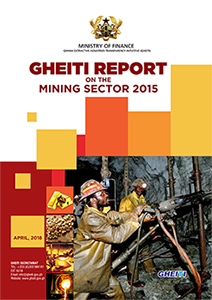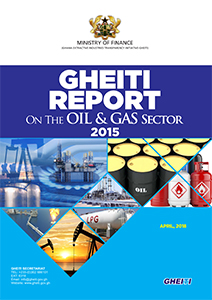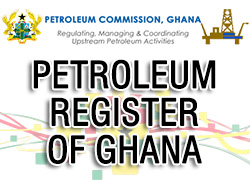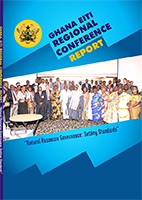| Ghana Poised To Deliver On Bod Commitment In spite of political transition |
 |
 |
 |
|
Historically elections in Ghana have not focused on the real issues affecting the country’s socio-economic fortunes, but rather on trivialities such as ethnicity and the health status of contestants. But this is likely to change as ‘bread and butter issues’ and corruption assumed centre stage of the country’s 2016 general elections. Indeed the outcome of these elections was determined by which party had a better message and a more convincing strategy for fighting corruption. Corruption has become a major part of the country’s public political discourse. Though, the 2016 Corruption Perception Index (CPI) published by Transparency International (TI), ranked Ghana 56th out of 168 countries in the world, with a score of 47 in the fight against corruption, indicating a slight improvement on previous performances, most Ghanaians still feel the previous administration did not do enough to deter public office holders from acts of corruption. Indeed, for nearly a decade, Ghana has been working on safeguards to curb corruption and its associated illicit financial flows, through the framework of the Inter-Governmental Action Group against Money Laundering in West Africa (GIABA), a specialised institution of ECOWAS, responsible for facilitating the adoption and implementation of Anti-Money Laundering (AML) and Counter-Financing of Terrorism (CFT) measures in West Africa. In spite of the efforts, a GIABA peer review in 2012 revealed among others, that procurement irregularities involving companies whose Beneficial Owners continued to operate under a cloak of anonymity persisted. Not much progress was, however, made in the area of company ownership disclosure until Ghana’s EITI (GHEITI) began to build the needed momentum for it, by working together with stakeholders to fashion out an appropriate legal framework that will support such a regime. GHEITI itself was under EITI obligation to develop a Roadmap for the implementation of a Beneficial Ownership Disclosure (BOD) regime by 31st December, 2016. The Government of Ghana subsequently, came under intense pressure from civil society actors engaged in the EITI process to make firmer commitment to BOD in the extractive sector, as the then President, John Dramani Mahama prepared for the UK Anti-Corruption Summit in May 2016. Political Overtures Even though the President made an unequivocal commitment to fighting corruption in all its manifestations, and to lifting the veil off Beneficial Owners of companies operating in Ghana, his strongest political opponent, the New Patriotic Party’s flagbearer, Nana Addo Dankwa Akufo-Addo (now President of the Republic of Ghana), seized the opportunity to announce his strategy for fighting corruption, which he indicated, will include Beneficial Ownership Disclosure. Speaking to the Public Agenda newspaper in Accra, on Friday 12 February, 2016, Nana Akufo Addo revealed that under his rule, the Public Procurement Act will be strictly enforced, and that all contracts shall be made publicly accessible for citizens to make their own judgment on the value-for-money underpinnings of the contracts. This, he said, is important for enhancing the demand-side of social accountability. He gave the assurance that, if elected into office, he will ensure that the natural persons behind all the companies bidding for government contracts and natural resource concessions are known. This he said, will reduce abuses and ease the fiscal pressures that give rise to burdensome taxes Ghanaians are often saddled with. It appears that Ghanaian voters believed the opposition leader’s message, and voted massively for the NPP’s Nana Addo Dankwa Akufo Addo in the elections held later in the year. After the swearing-in of the new government, the Vice President, His Excellency Alhaji Mahmudu Bawumia, while opening an international conference on Beneficial Ownership in Accra, re-affirmed the government’s commitment to provide the needed support for making further progress with BO implementation. Status Update Following national consultations on BOD, organised by GHEITI in April, 2016, a consensus emerged that the scope of Beneficial Ownership Disclosure should be expanded beyond extractives and must be applied to all companies registered in Ghana. This, stakeholders thought was necessary to enable Ghana comply not only with the EITI requirement, but also with the GIABA and FATF standards. The Companies’ Act of 1963 was therefore, identified as the most appropriate legal instrument to establish a Beneficial Ownership regime. Incidentally a new Bill expected to replace the existing one was under consideration by Parliament at the time, providing a timely opportunity for GHEITI and other stakeholders to make input into it. It soon became apparent that due to time constraint, and the huge amount of work required to be done on the Bill before the last Parliament rose, an amendment to the existing law under a certificate of urgency would rather be a more strategic way of providing in good time, the enabling legislation for BO disclosure in Ghana. The Company Act of 1963 was therefore, amended in August, 2016, paving the way for implementation of a BOD regime in Ghana. The law mandates the Registrar-General to collect the information as well as maintain the Beneficial Ownership Register. By providing for beneficial ownership disclosure for all registered companies in Ghana, the frontiers of transparency have been expanded to sectors beyond the extractives and areas such as public procurement and contract allocation. Stormy Moments Ghana’s progress towards the establishment of a BO regime has of course not been without challenges. There have been major disagreements on the definition of Politically Exposed Persons, and whether or not family members who may not necessary approve of the PEPs’ political role should be compelled to disclose their business interest. Other disagreements relate to whether or not the BOD Register, to be established and managed by the Registrar-General should be publicly accessible, or accessibility should be limited to only basic information as required by the Financial Action Task Force. Associated with this was the vexed question about what will constitute the scope of that basic information? Looking Ahead These disagreements have not been entirely resolved. In fact, the amendment to the Companies Act of 1963 does not require disclosure by families and friends of local PEPs. It is also silent on whether or not the BO Register will be publicly accessible, but explicit on making it available to competent authorities as defined in the Act. Going forward, Ghana will need to develop an implementation framework with clear timelines to ensure that it stays the course, and works to meet the EITI 2020 deadline for operationalising a BO disclosure regime. Discussions are currently ongoing among key stakeholders, including civil society groups on taking advantage of the new Companies’ Bill being drafted to replace the existing one, to address the afore-mentioned contentious issues. Meanwhile, the Registrar General Department (RGD) is being supported to come up with an implementation plan for the amended Act. Also, the RGD is being supported in three areas which include: (i) undertaking a comprehensive needs assessment which includes putting in place an IT infrastructure (ii) developing a prototype BO register (iii) designing new forms to include collection of BO information among others. The needs assessment has been done and the report is being reviewed by RGD. GHEITI is facilitating and coordinating all these issues and discussions, with support from the Natural Resource Governance Institute (NRGI) and Strengthening Action Against Corruption (STAAC). There is no doubt that Ghana has made enormous progress in fulfilling its BO disclosure obligation in a short time and GHEITI certainly takes a chunk of the credit for this. |










